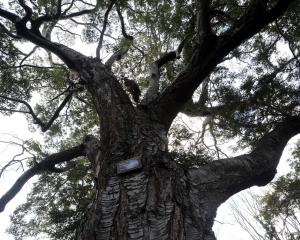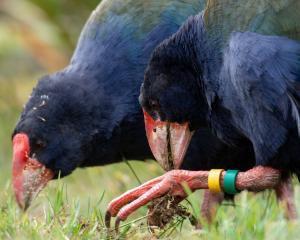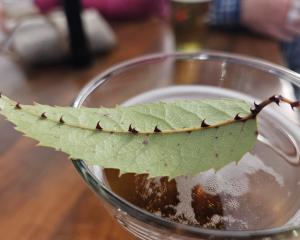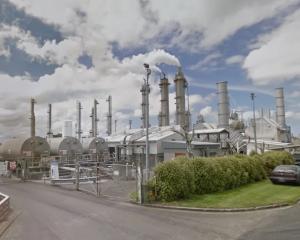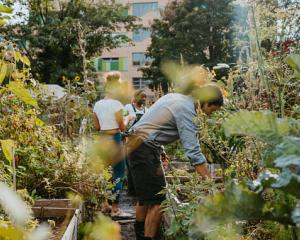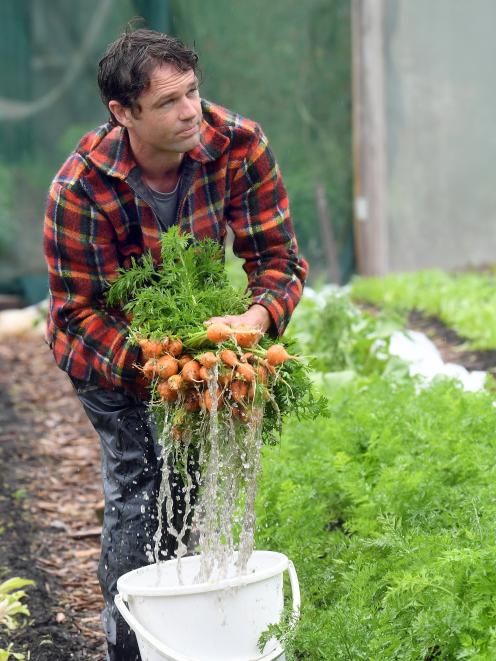
John McCafferty celebrated his birthday last month, cutting a cake that could have been lit by 37 candles. Still shy of the big 4-0, he feels lucky to own a 14ha small holding that hugs the meandering curves of the Pleasant River south of Palmerston. But this is no hobby farm. The bulk of McCafferty’s income comes from a quarter of an acre (0.1ha), on which he grows primarily salad crops and speciality root vegetables for his certified organic business Pleasant River Produce.
Growing vegetables was not what Dunedin-raised McCafferty planned to do with his life. Fifteen years ago, armed with a fine arts degree he and his partner Alison Stoddart set off on their big OE, "wwoofing" in Portugal and then working for six months on a "huge" 12ha organic market garden in England that encircled a retail shop. Working there, growing and selling a wide range of vegetables, was a turning point, he says. He learned the basics of organic production and fell in love with growing food.
"I just really enjoyed eating the things that I’d grown."
Returning to Dunedin with a shared dream, they were able to purchase the Pleasant Valley property with help from her family and started working the land together. Tragedy struck in 2012 when Stoddart was fatally injured in a car crash. Overnight McCafferty’s priorities shifted to solo parenting their 8-month-old baby girl.
"It’s really been since Eleanor, my daughter, went to school that I’ve ramped up production and focused a bit more."
McCafferty has put in about 300m2 of tunnel houses to extend the market garden’s growing season and provide him with an income through the winter. With quick crop rotations, sometimes four in a season, he’s able to make a gross profit of $50/m2. By definition it is small intensive production, but "if you’re standing in the middle of it, it doesn’t feel small!" he says.
By working a smaller piece of land with hand tools, McCafferty has avoided the debt trap of large agricultural machinery purchases. He’s also a fan of what can be done on less.
"I think there’s this idea that you need to get bigger to get better, but actually just fine-tuning on a small scale can be hugely rewarding and productive. A smaller intensive space lends itself to higher value crops and I’m not really interested in growing potatoes and carrots to sell to distributors."
Growing intensively has wider repercussions. Already 50% of the world’s vegetated land is used for growing food for humans or their livestock. Changing practices to produce more food from less land is a critical challenge as global population rises towards 10billion by 2050.
It’s been three years since McCafferty’s daughter started school and now the business is starting to pay its way.
"I’m able to just make a living and I think this is an important point," he says.
"It’s not something you do to make money."
Some things money can’t buy.
"I can stand where I work and just appreciate the beauty around me, and I think I’m pretty fortunate to be able to do that. And I like producing something that is so basic, that’s so necessary and can be so visually pleasing — and tasty of course!" he says.
McCafferty maintains a family-friendly work-life balance, working during Eleanor’s school hours or "before she’s awake in the morning", and "mostly" keeping his weekends free to spend with her, his new partner and their baby girl.
Rarely needing to weed is one way he saves time. Without the array of herbicides used by conventional horticulture, organic farming has a reputation for being more labour intensive due to manual weeding. But McCafferty has switched to a deep mulch no-dig system that smothers any weedy opportunists, as well as adding nutrients and carbon.

"I think we’re pretty fortunate in Dunedin as far as growing goes. There’s a huge demand that hasn’t been met and I can’t really grow enough for the market that I supply at the moment."
Market opportunities for organic food are on the up. In the OANZ Organic Market Report 2018, the organic sector grew 30% from 2015 to 2017 — domestically and globally — with eight out of 10 shoppers buying organic products at least fortnightly. Almost half of those surveyed said they bought organic products for their environmental and sustainability benefits.
Dr Selva Selvarajah, previously director of resource management at the Otago Regional Council, writes that growing organically is better for the soil and the environment than farming conventionally. Reviewing the scientific literature in 2018 to compare the two farming methods, he calculated organic farming on average is associated with less energy use (30%-50%), reduced greenhouse gas emissions (332-652 CO2e kg/ha/year), decreased nitrate pollution (26%-70%) and soil erosion (24%), and improved soil quality that sequesters carbon.
To meet an increased demand will require more growers.
Even without the back-break of weeding, growing organic food is hard and demanding, McCafferty says. And he’s in his prime, a good deal younger than the typical self-employed vegetable grower, who averages 53.1 to 54 years, according to Statistics New Zealand Census figures.
The ageing demographic of farming is part of a "serious" global trend, Canadian urban organic horticulturist Curtis Stone says.
"It doesn’t get a lot of air play but it is probably the most important issue because it’s sort of the black swan that nobody sees coming."

In times past, buying a piece of land was an achievable goal for a young person intent on farming. Urban encroachment and the popularity of the lifestyle block have driven up the price of land for small peri-urban farms. The median price of a lifestyle block in Otago is now close to $250,000/ha and in Southland almost $200,000.
Stone says most of the market gardeners he met when he toured New Zealand in 2016 and 2017 were leasing.
"Land is expensive in New Zealand. To buy land is ridiculous and really is not possible for a lot of young farmers. But that’s OK, you can lease land for very cheap."
Facing similar hurdles in his hometown of Guelph, Ontario, Stone decided to lease land from his neighbours, creating an urban farm on multiple backyards, with a base of operation that was usually at his house.
Andy Barratt, chairman of Our Food Network (OFN), Dunedin’s local food advocacy group, says leasing land has potential in the urban setting.
"If you live in town the land is in town and you can get there readily without spending too much time going backwards and forwards."
Although land can sometimes be leased at low cost, another option is land-sharing where people who have pieces of land they are not using are put in touch with people nearby who would like to work some land. In this type of agreement, the landowner doesn’t charge the grower, but instead receives a percentage of the produce sales.
Barratt says OFN does see land-sharing as a viable solution but to date they have had little interest among their members.
"We do know of people who’ve got land who might be prepared to do a land share so we probably could at least get people in contact. But at the moment it just seems to me to be a bit of a dead duck really."
One challenge is that growing produce on other people’s land is inherently insecure as owners may at some point sell or decide to use the land themselves. However, Stone who has "turned over 20 different plots" since 2008, advocates a different mindset.
"If you go into the business knowing that it’s temporary, that should be how you structure all the things that you do there."
Making a 50-75% net profit, Stone grosses $C100,000 ($118,349) annually from a quarter acre that requires two full-time workers eight months of the year, reducing to part-time during cooler months. He’s realistic that growing organics for the middle and upper classes will not be financially viable in areas where poverty is prevalent.
"It’s tough to sell poor communities on premium lettuce."
However, unless people are homeless he adds, "most people have access to 3000sq feet (278sq m) of growing space" that can can be used for growing staples.
"A lot of people can grow food."
Insufficient skills are also a significant barrier to young people entering horticulture, Barratt says. With fewer people growing up on farms, information and skills are not being transferred to the next generation as they used to be.
Barratt’s heartened by the Garden to Plate programme that links growing and preparing vegetables to the school curriculum.
"If we want a generation of kids who are going to go on to grow food, we need kids who know about how things grow from the age of 5."
With help from students at the University of Otago and Otago Polytechnic, OFN has made available a resource for schools that includes how to start a school garden and a growing plan. So far it has been distributed to 12 schools in Dunedin.
"We’re now in the process of contracting a person who can work alongside teachers and students to get their school gardens growing," says Niki Bould, OFN’s Ideas into Action Facilitator.
Formal educational opportunities exist for delivering skills in organic horticulture across the country. For example, the new zero fees certificate in organic primary production (level 3) being delivered in partnership with the Southland Institute of Technology and the BHU Organics Trust in Lincoln started last month with a full class of 14 students, says Dr Charles Merfield, organic college tutor and research manager at BHU.

"To me what we’re seeing now with all the massive global challenges we’ve got, people are asking questions and a lot of the time many of the problems come back at agriculture’s door."
The Government is "focused on attracting, training and retraining a diverse range of people to fix the skills gap facing farmers and growers," says Agriculture Minister Damien O’Connor.
O’Connor, who in his day was the West Coast Young Farmer of the Year, says estimates are that the primary sector will need another 50,000 workers by 2025 and 92,000 with qualifications.
As part of that challenge the Government recently passed the Vocational Education and Training Reform Bill
and is progressing legislation to develop a set of organic standards for New Zealand that should increase consumer confidence in organics, increase certainty for businesses producing organic food, and help with international trade, he says.
On the ground, groups such Otago Organics, a branch of the Organic Farm New Zealand certification scheme can help new growers learn skills and establish themselves as certified organic growers. That includes a mentoring scheme, a shared food stall at the Otago Farmers Market and running educational workshops in the community, says Alice Baird, co-chair of Otago Organics.
But ultimately, says Baird, what will keep young people in the industry is being able to make a decent income from their efforts.
At some point, John McCafferty would like to see Pleasure River Produce used as an example of a working and viable farm.
"It could be used as a talking point, a place where people can come to learn more," he says.
And there are opportunities for bringing organic horticulture right into the heart of the city he says. Less than half an acre would do it.
"You could put it in the middle of Dunedin and it would fit somewhere. That would be lovely if it happens at some point."


